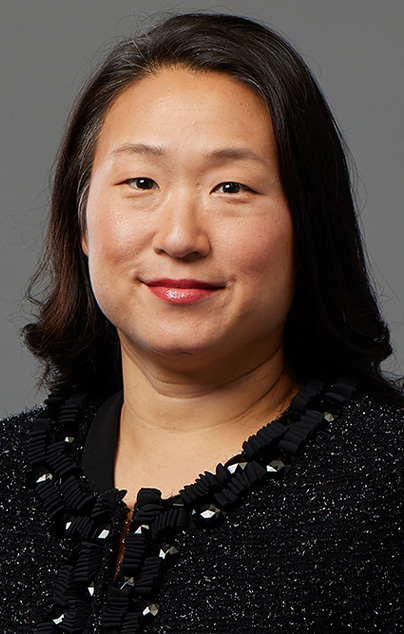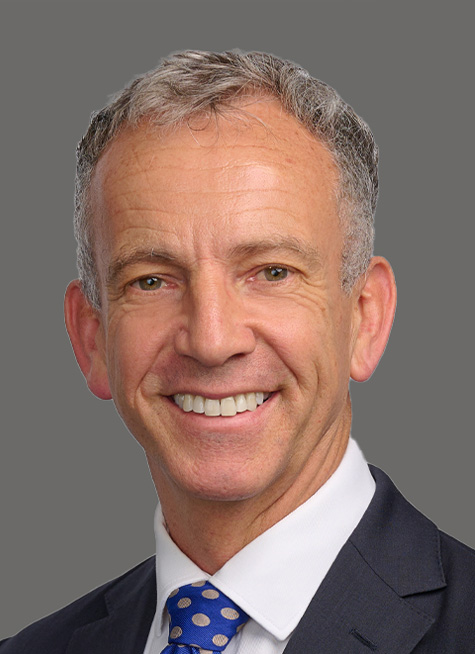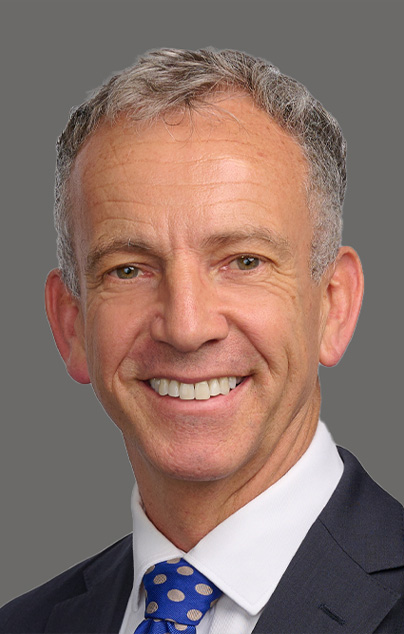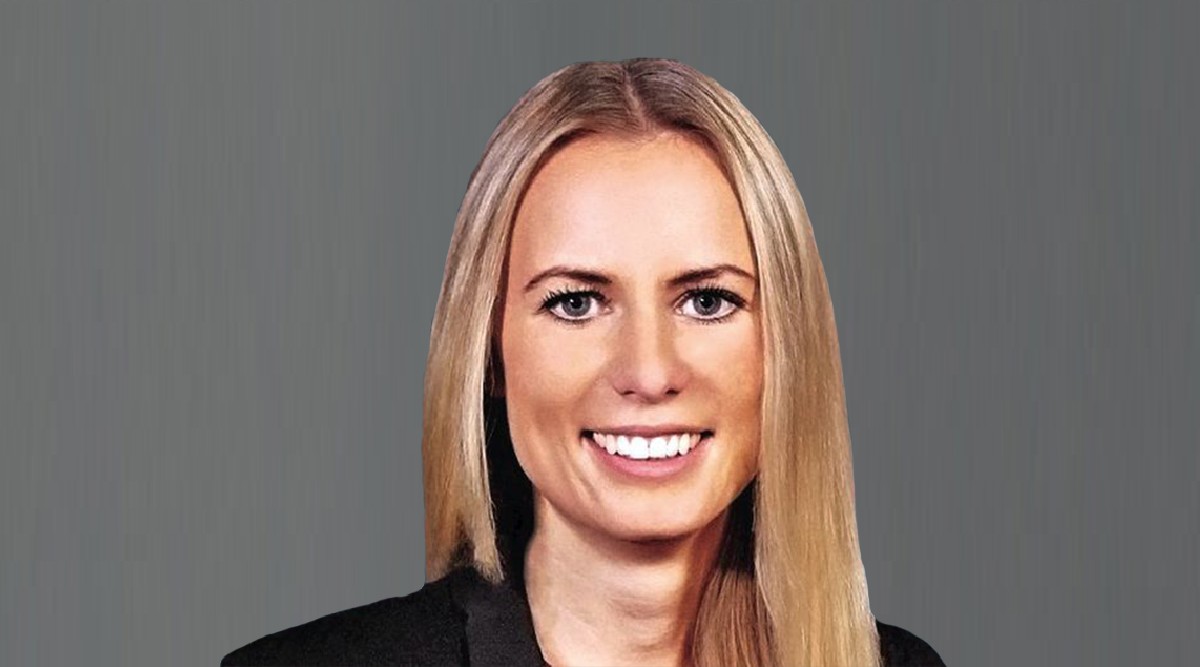Content navigation
Overview
As long-term investors, we use bottom-up, fundamental research to identify high quality emerging market companies with robust balance sheets and growth potential that we believe is attractive. Our process for identifying the very best investment opportunities in emerging markets is underpinned by our long-term investment philosophy and belief that companies exhibiting these characteristics are frequently undervalued by the market.
ESG factors are embedded in the investment process and engagement is viewed as an essential element of our analysis. Top-down factors are considered a source of risk, as such, a member of the team is dedicated to macro and political research. Investors can expect relative performance to be delivered on the strength of individual investments and not a particular market outcome.
Key Information
| Portfolio characteristics | UK Equity Income |
|---|---|
| Objective | Long-Term Growth |
| Asset Class | Listed Equities |
| Style | All-cap core |
| Investable Universe | Emerging Markets |
| Benchmark | MSCI Emerging Markets Index |
| Market capitalisation | All-Cap |
| Sector/country allocations | As a result of stock selection-managed within factor risk analysis |
| Security limit | Benchmark +5% |
| Number of stocks | 40-60 |
| Portfolio turnover | Low - expected turnover |
| Forecast tracking error | Maximum of 8% per annum |
| Manager Inception | October 2010 |
Why invest in Global Emerging Markets

High-conviction stock-driven investing
We focus on company fundamentals rather than macro factors to create a highly differentiated, stock-driven portfolio with a focus on long-term outcomes.

Collaborative team culture
Our uniquely collaborative culture fosters challenge and debate, leading to deeper insights and better decision-making. All team members are responsible for research and portfolio management.
Investment strategy
Our investment philosophy is founded on a belief that the market frequently misprices a company’s long-term, value-creation potential; as long-term investors, we are able to identify the nature and scale of the mispricing through rigorous fundamental research.
- We use bottom-up, fundamental research with ESG integration to identify high quality companies with robust balance sheets and demonstrable, growth potential that we believe is attractive. We believe that companies exhibiting these characteristics are frequently undervalued by the market and that this inefficiency has been persistent over time.
- The key components of our transparent and disciplined investment process can be categorised as idea generation, fundamental analysis, stock discussion and portfolio construction.
- Each stage has a clear outcome, to track the journey of an investment from early idea, through to possible inclusion in our portfolio. This helps us collaborate in an effective manner, harnesses our collective knowledge at the appropriate times and helps us build conviction in our investment decisions.

Investment strategy
.
Our investment philosophy is founded on a belief that the market frequently misprices a company’s long-term, value-creation potential; as long-term investors, we are able to identify the nature and scale of the mispricing through rigorous fundamental research.
- We use bottom-up, fundamental research with ESG integration to identify high quality companies with robust balance sheets and demonstrable, growth potential that we believe is attractive. We believe that companies exhibiting these characteristics are frequently undervalued by the market and that this inefficiency has been persistent over time.
- The key components of our transparent and disciplined investment process can be categorised as idea generation, fundamental analysis, stock discussion and portfolio construction.
- Each stage has a clear outcome, to track the journey of an investment from early idea, through to possible inclusion in our portfolio. This helps us collaborate in an effective manner, harnesses our collective knowledge at the appropriate times and helps us build conviction in our investment decisions.

Investment strategy
Our investment philosophy is founded on a belief that the market frequently misprices a company’s long-term, value-creation potential; as long-term investors, we are able to identify the nature and scale of the mispricing through rigorous fundamental research.
- We use bottom-up, fundamental research with ESG integration to identify high quality companies with robust balance sheets and demonstrable, growth potential that we believe is attractive. We believe that companies exhibiting these characteristics are frequently undervalued by the market and that this inefficiency has been persistent over time.
- The key components of our transparent and disciplined investment process can be categorised as idea generation, fundamental analysis, stock discussion and portfolio construction.
- Each stage has a clear outcome, to track the journey of an investment from early idea, through to possible inclusion in our portfolio. This helps us collaborate in an effective manner, harnesses our collective knowledge at the appropriate times and helps us build conviction in our investment decisions.

Investment strategy
Our investment philosophy is founded on a belief that the market frequently misprices a company’s long-term, value-creation potential; as long-term investors, we are able to identify the nature and scale of the mispricing through rigorous fundamental research.
- We use bottom-up, fundamental research with ESG integration to identify high quality companies with robust balance sheets and demonstrable, growth potential that we believe is attractive. We believe that companies exhibiting these characteristics are frequently undervalued by the market and that this inefficiency has been persistent over time.
- The key components of our transparent and disciplined investment process can be categorised as idea generation, fundamental analysis, stock discussion and portfolio construction.
- Each stage has a clear outcome, to track the journey of an investment from early idea, through to possible inclusion in our portfolio. This helps us collaborate in an effective manner, harnesses our collective knowledge at the appropriate times and helps us build conviction in our investment decisions.

Investment team
Alastair Reynolds, ASIP
- Job title
- Portfolio Manager
Andrew Mathewson, CFA
- Job title
- Portfolio Manager
Aimee Truesdale, CFA
- Job title
- Portfolio Manager
Colin Dishington, CFA
- Job title
- Portfolio Manager
Divya Mathur, ASIP
- Job title
- Portfolio Manager
Paul Desoisa, CFA
- Job title
- Portfolio Manager
Paul Sloane, ASIP
- Job title
- Portfolio Manager
Our capabilities
Martin Currie operates as an independent specialist investment manager within the Franklin Templeton group. This means that we retain all the competitive advantages of a boutique investment firm.
Franklin Templeton is responsible for the sales and client service of our funds for financial advisers and individual investors.
Click the image to open the fund page on the Franklin Templeton website.
Our capabilities
Martin Currie operates as an independent specialist investment manager within the Franklin Templeton group. This means that we retain all the competitive advantages of a boutique investment firm.
Franklin Templeton is responsible for the sales and client service of our funds for financial advisers and individual investors.
Click the image to open the fund page on the Franklin Templeton website.
Our capabilities
Martin Currie operates as an independent specialist investment manager within the Franklin Templeton group. This means that we retain all the competitive advantages of a boutique investment firm.
Franklin Templeton is responsible for the sales and client service of our funds for financial advisers and individual investors.
Click the image to open the fund page on the Franklin Templeton website.
Our capabilities
Martin Currie operates as an independent specialist investment manager within the Franklin Templeton group. This means that we retain all the competitive advantages of a boutique investment firm.
Franklin Templeton is responsible for the sales and client service of our funds for financial advisers and individual investors.
Click the image to open the fund page on the Franklin Templeton website.
Our capabilities
Martin Currie operates as an independent specialist investment manager within the Franklin Templeton group. This means that we retain all the competitive advantages of a boutique investment firm.
Franklin Templeton is responsible for the sales and client service of our funds for financial advisers and individual investors.
Click the image to open the fund page on the Franklin Templeton website.
We offer access to the strategy via segregated accounts and separately managed accounts. Please contact us or speak to a member of our sales team, to discuss the most appropriate investment to meet your requirements.
Our capabilities
We offer access to the strategy via segregated accounts and separately managed accounts. Please visit our contact page or speak to a member of our sales team, to discuss the most appropriate investment to meet your requirements.
Our capabilities
We offer access to the strategy via segregated accounts and separately managed accounts. Please visit our contact page or speak to a member of our sales team, to discuss the most appropriate investment to meet your requirements.
Our capabilities
We offer access to the strategy via segregated accounts and separately managed accounts. Please visit our contact page or speak to a member of our sales team, to discuss the most appropriate investment to meet your requirements.
We offer access to the strategy via segregated accounts and separately managed accounts. Please visit our contact page or speak to a member of our sales team, to discuss the most appropriate investment to meet your requirements.
We offer access to the strategy via segregated accounts and separately managed accounts. Please contact us or speak to a member of our sales team, to discuss the most appropriate investment to meet your requirements.
We offer access to the strategy via segregated accounts and separately managed accounts. Please contact us or speak to a member of our sales team, to discuss the most appropriate investment to meet your requirements.
We offer access to the strategy via segregated accounts and separately managed accounts.
Please contact us or speak to a member of our sales team, to discuss the most appropriate investment to meet your requirements and for more information on our investment capabilities.
Our capabilities
We offer access to the strategy via segregated accounts and separately managed accounts. Please visit our contact page or speak to a member of our sales team, to discuss the most appropriate investment to meet your requirements.
Center Heading Latest insights
Latest insights
-

Where’s the Beef? It’s Emerging Markets Earnings….
Back in the 80s, an American fast food chain made the memorable slogan, “Where’s the beef?” to imply that its competitors were not providing enough substance – in this case - beef! In this update on the Emerging Markets (EM) we take some time to lay out why we believe EM is a compelling asset class story. The question we get most often is “what’s the catalyst that’s going to drive EM forward?”
- Date published
- 6 Jul 2023
- Tag
- Global Emerging Markets
-

A beginner’s guide to semiconductors
An overview of the semiconductor industry, taking a look at the manufacturing process, key industry players and the current shape of the industry.
- Date published
- 10 Mar 2023
- Tag
- Global Emerging Markets
Important information
This information is issued and approved by Martin Currie Investment Management Limited (‘MCIM’), authorised and regulated by the Financial Conduct Authority. It does not constitute investment advice. Market and currency movements may cause the capital value of shares, and the income from them, to fall as well as rise and you may get back less than you invested.
The information contained in this document has been compiled with considerable care to ensure its accuracy. However, no representation or warranty, express or implied, is made to its accuracy or completeness. Martin Currie has procured any research or analysis contained in this document for its own use. It is provided to you only incidentally and any opinions expressed are subject to change without notice.
The document does not form the basis of, nor should it be relied upon in connection with, any subsequent contract or agreement. It does not constitute, and may not be used for the purpose of, an offer or invitation to subscribe for or otherwise acquire shares in any of the products mentioned.
Past performance is not a guide to future returns.
The distribution of specific products is restricted in certain jurisdictions, investors should be aware of these restrictions before requesting further specific information.
The views expressed are opinions of the portfolio managers as of the date of this document and are subject to change based on market and other conditions and may differ from other portfolio managers or of the firm as a whole. These opinions are not intended to be a forecast of future events, research, a guarantee of future results or investment advice.
The analysis of Environmental, Social and Governance (ESG) factors forms an important part of the investment process and helps inform investment decisions. The strategy/ies do not necessarily target particular sustainability outcomes.
Risk warnings – Investors should also be aware of the following risk factors which may be applicable to the strategy shown in this document.
- Investing in foreign markets introduces a risk where adverse movements in currency exchange rates could result in a decrease in the value of your investment.
- This strategy may hold a limited number of investments. If one of these investments falls in value this can have a greater impact on the strategy’s value than if it held a larger number of investments.
- Smaller companies may be riskier and their shares may be less liquid than larger companies, meaning that their share price may be more volatile.
- Emerging markets or less developed countries may face more political, economic or structural challenges than developed countries. Accordingly, investment in emerging markets is generally characterised by higher levels of risk than investment in fully developed markets.
- The strategy may invest in derivatives, Index futures and FX forwards to obtain, increase or reduce exposure to underlying assets.
- The use of derivatives may result in greater fluctuations of returns due to the value of the derivative not moving in line with the underlying assets. Certain types of derivatives can be difficult to purchase or sell in certain market conditions.
Important information
This information is issued and approved by Martin Currie Investment Management Limited (‘MCIM’), authorised and regulated by the Financial Conduct Authority. It does not constitute investment advice. Market and currency movements may cause the capital value of shares, and the income from them, to fall as well as rise and you may get back less than you invested.
The information contained in this document has been compiled with considerable care to ensure its accuracy. However, no representation or warranty, express or implied, is made to its accuracy or completeness. Martin Currie has procured any research or analysis contained in this document for its own use. It is provided to you only incidentally and any opinions expressed are subject to change without notice.
The document does not form the basis of, nor should it be relied upon in connection with, any subsequent contract or agreement. It does not constitute, and may not be used for the purpose of, an offer or invitation to subscribe for or otherwise acquire shares in any of the products mentioned.
Past performance is not a guide to future returns.
The distribution of specific products is restricted in certain jurisdictions, investors should be aware of these restrictions before requesting further specific information.
The views expressed are opinions of the portfolio managers as of the date of this document and are subject to change based on market and other conditions and may differ from other portfolio managers or of the firm as a whole. These opinions are not intended to be a forecast of future events, research, a guarantee of future results or investment advice.
The analysis of Environmental, Social and Governance (ESG) factors forms an important part of the investment process and helps inform investment decisions. The strategy/ies do not necessarily target particular sustainability outcomes.
Risk warnings – Investors should also be aware of the following risk factors which may be applicable to the strategy shown in this document.
- Investing in foreign markets introduces a risk where adverse movements in currency exchange rates could result in a decrease in the value of your investment.
- This strategy may hold a limited number of investments. If one of these investments falls in value this can have a greater impact on the strategy’s value than if it held a larger number of investments.
- Smaller companies may be riskier and their shares may be less liquid than larger companies, meaning that their share price may be more volatile.
- Emerging markets or less developed countries may face more political, economic or structural challenges than developed countries. Accordingly, investment in emerging markets is generally characterised by higher levels of risk than investment in fully developed markets.
- The strategy may invest in derivatives, Index futures and FX forwards to obtain, increase or reduce exposure to underlying assets.
- The use of derivatives may result in greater fluctuations of returns due to the value of the derivative not moving in line with the underlying assets. Certain types of derivatives can be difficult to purchase or sell in certain market conditions.
For professional investors in Canada.
This material is intended for residents in, or incorporated in, Canada and are a Permitted Client for the purposes of MI 31-103. The information on this section of the website is not intended for use by any other person, including members of the public.
Martin Currie Inc, incorporated in New York with its registered office at 280 Park Avenue, New York, NY 10017 and having a UK branch registered in Scotland (no SF000300), Head office, 5 Morrison Street, 2nd floor, Edinburgh, EH3 8BH, Tel: +44 (0) 131 229 5252 Fax: +44 (0) 131 222 2532 www.martincurrie.com, operates under the International Adviser Exemption with the Ontario Securities Commission (‘OSC’) and is therefore currently not required to be registered as a portfolio manager for the purposes of MI 31-103. Martin Currie Inc. is also authorised by the UK Financial Conduct Authority.
For the avoidance of doubt, nothing excludes, limits or restricts our obligations to you under the UK Financial Services and Market Act 2000, National Instruments or any other applicable law or regulation.
The opinions and views in this website do not take into account your individual circumstances, objectives, or needs and are not intended to be recommendations of particular financial instruments or strategies to you. This website does not identify all the risks (direct or indirect) or other considerations which might be material to you when entering any financial transaction. You should consult with your professional advisers before undertaking any investment activity. The information provided on this website should not be treated as advice or a recommendation to buy or sell any particular security or other investment. The information on this website has not been reviewed by any competent regulatory authority.
Important information
This information is issued and approved by Martin Currie Investment Management Limited (‘MCIM’), authorised and regulated by the Financial Conduct Authority. It does not constitute investment advice. Market and currency movements may cause the capital value of shares, and the income from them, to fall as well as rise and you may get back less than you invested.
The information contained in this document has been compiled with considerable care to ensure its accuracy. However, no representation or warranty, express or implied, is made to its accuracy or completeness. Martin Currie has procured any research or analysis contained in this document for its own use. It is provided to you only incidentally and any opinions expressed are subject to change without notice.
The document does not form the basis of, nor should it be relied upon in connection with, any subsequent contract or agreement. It does not constitute, and may not be used for the purpose of, an offer or invitation to subscribe for or otherwise acquire shares in any of the products mentioned.
Past performance is not a guide to future returns.
The distribution of specific products is restricted in certain jurisdictions, investors should be aware of these restrictions before requesting further specific information.
The views expressed are opinions of the portfolio managers as of the date of this document and are subject to change based on market and other conditions and may differ from other portfolio managers or of the firm as a whole. These opinions are not intended to be a forecast of future events, research, a guarantee of future results or investment advice.
The analysis of Environmental, Social and Governance (ESG) factors forms an important part of the investment process and helps inform investment decisions. The strategy/ies do not necessarily target particular sustainability outcomes.
Risk warnings – Investors should also be aware of the following risk factors which may be applicable to the strategy shown in this document.
- Investing in foreign markets introduces a risk where adverse movements in currency exchange rates could result in a decrease in the value of your investment.
- This strategy may hold a limited number of investments. If one of these investments falls in value this can have a greater impact on the strategy’s value than if it held a larger number of investments.
- Smaller companies may be riskier and their shares may be less liquid than larger companies, meaning that their share price may be more volatile.
- Emerging markets or less developed countries may face more political, economic or structural challenges than developed countries. Accordingly, investment in emerging markets is generally characterised by higher levels of risk than investment in fully developed markets.
- The strategy may invest in derivatives, Index futures and FX forwards to obtain, increase or reduce exposure to underlying assets.
- The use of derivatives may result in greater fluctuations of returns due to the value of the derivative not moving in line with the underlying assets. Certain types of derivatives can be difficult to purchase or sell in certain market conditions.
For wholesale investors in Australia.
This material is provided on the basis that you are a wholesale client within the definition of ASIC Class Order 03/1099. MCIM is authorised and regulated by the FCA under UK laws, which differ from Australian laws.
Important information
This information is issued and approved by Martin Currie Investment Management Limited (‘MCIM’), authorised and regulated by the Financial Conduct Authority. It does not constitute investment advice. Market and currency movements may cause the capital value of shares, and the income from them, to fall as well as rise and you may get back less than you invested.
The information contained in this document has been compiled with considerable care to ensure its accuracy. However, no representation or warranty, express or implied, is made to its accuracy or completeness. Martin Currie has procured any research or analysis contained in this document for its own use. It is provided to you only incidentally and any opinions expressed are subject to change without notice.
The document does not form the basis of, nor should it be relied upon in connection with, any subsequent contract or agreement. It does not constitute, and may not be used for the purpose of, an offer or invitation to subscribe for or otherwise acquire shares in any of the products mentioned.
Past performance is not a guide to future returns.
The distribution of specific products is restricted in certain jurisdictions, investors should be aware of these restrictions before requesting further specific information.
The views expressed are opinions of the portfolio managers as of the date of this document and are subject to change based on market and other conditions and may differ from other portfolio managers or of the firm as a whole. These opinions are not intended to be a forecast of future events, research, a guarantee of future results or investment advice.
The analysis of Environmental, Social and Governance (ESG) factors forms an important part of the investment process and helps inform investment decisions. The strategy/ies do not necessarily target particular sustainability outcomes.
Risk warnings – Investors should also be aware of the following risk factors which may be applicable to the strategy shown in this document.
- Investing in foreign markets introduces a risk where adverse movements in currency exchange rates could result in a decrease in the value of your investment.
- This strategy may hold a limited number of investments. If one of these investments falls in value this can have a greater impact on the strategy’s value than if it held a larger number of investments.
- Smaller companies may be riskier and their shares may be less liquid than larger companies, meaning that their share price may be more volatile.
- Emerging markets or less developed countries may face more political, economic or structural challenges than developed countries. Accordingly, investment in emerging markets is generally characterised by higher levels of risk than investment in fully developed markets.
- The strategy may invest in derivatives, Index futures and FX forwards to obtain, increase or reduce exposure to underlying assets.
- The use of derivatives may result in greater fluctuations of returns due to the value of the derivative not moving in line with the underlying assets. Certain types of derivatives can be difficult to purchase or sell in certain market conditions.
For professional investors.
In Hong Kong:
The contents of this document have not been reviewed by any regulatory authority in Hong Kong. You are advised to exercise caution in relation to the offer. If you are in any doubt about any of the contents of this document, you should obtain independent professional advice.
In Singapore:
This document is provided by Templeton Asset Management Limited
(Registration Number (UEN): 199205211E) which is licensed by the Monetary Authority of Singapore and whose business address is at 7 Temasek Boulevard, #38-03, Suntec Tower One, Singapore, 038987. Templeton Asset Management Limited is a wholly owned subsidiary of Franklin Resources, Inc. This document is for information only and does not constitute an offer or solicitation to buy or sell any units in any fund. This advertisement or publication has not been reviewed by the Monetary Authority of Singapore. Martin Currie is not registered with or regulated by any regulatory authorities in Singapore.
This material is provided on the basis that you are a wholesale client within the definition of ASIC Class Order 03/1099. MCIM is authorised and regulated by the FCA under UK laws, which differ from Australian laws.
In Korea:
This document is for information purposes only. It is prepared and presented to provide an introduction to the business of MCIM and its related companies(collectively known as ‘Martin Currie’). This document does not constitute an offer to sell or a solicitation of any offer to invest in any security, fund or other vehicle managed or advised by Martin Currie.
None of the security(ies), fund(s) or vehicle(s) managed by or advised by Martin Currie are registered in South Korea under the Financial Investment Services and Capital Markets Act of Korea and accordingly, none of these instruments nor any interest therein may be offered, sold or delivered, or offered or sold to any person for re-offering or resale, directly or indirectly, in South Korea or to any resident of South Korea except pursuant to applicable laws and regulations of South Korea. Martin Currie is not registered with or regulated by any regulatory authorities in South Korea.
In China:
This document does not constitute a public offer of the strategy, whether by sale or subscription, in the People’s Republic of China (the “PRC”). These strategies are not being offered or sold directly or indirectly in the PRC to or for the benefit of, legal or natural persons of the PRC. Further, no legal or natural persons of the PRC may directly or indirectly purchase any of the strategy or any beneficial interest therein without obtaining all prior PRC’s governmental approvals that are required, whether statutorily or otherwise. Persons who come into possession of this document are required by the issuer and its representatives to observe these restrictions.
Important information
This information is issued and approved by Martin Currie Investment Management Limited (‘MCIM’), authorised and regulated by the Financial Conduct Authority. It does not constitute investment advice. Market and currency movements may cause the capital value of shares, and the income from them, to fall as well as rise and you may get back less than you invested.
The information contained in this document has been compiled with considerable care to ensure its accuracy. However, no representation or warranty, express or implied, is made to its accuracy or completeness. Martin Currie has procured any research or analysis contained in this document for its own use. It is provided to you only incidentally and any opinions expressed are subject to change without notice.
The document does not form the basis of, nor should it be relied upon in connection with, any subsequent contract or agreement. It does not constitute, and may not be used for the purpose of, an offer or invitation to subscribe for or otherwise acquire shares in any of the products mentioned.
Past performance is not a guide to future returns.
The distribution of specific products is restricted in certain jurisdictions, investors should be aware of these restrictions before requesting further specific information.
The views expressed are opinions of the portfolio managers as of the date of this document and are subject to change based on market and other conditions and may differ from other portfolio managers or of the firm as a whole. These opinions are not intended to be a forecast of future events, research, a guarantee of future results or investment advice.
The analysis of Environmental, Social and Governance (ESG) factors forms an important part of the investment process and helps inform investment decisions. The strategy/ies do not necessarily target particular sustainability outcomes.
Risk warnings – Investors should also be aware of the following risk factors which may be applicable to the strategy shown in this document.
- Investing in foreign markets introduces a risk where adverse movements in currency exchange rates could result in a decrease in the value of your investment.
- This strategy may hold a limited number of investments. If one of these investments falls in value this can have a greater impact on the strategy’s value than if it held a larger number of investments.
- Smaller companies may be riskier and their shares may be less liquid than larger companies, meaning that their share price may be more volatile.
- Emerging markets or less developed countries may face more political, economic or structural challenges than developed countries. Accordingly, investment in emerging markets is generally characterised by higher levels of risk than investment in fully developed markets.
- The strategy may invest in derivatives, Index futures and FX forwards to obtain, increase or reduce exposure to underlying assets.
- The use of derivatives may result in greater fluctuations of returns due to the value of the derivative not moving in line with the underlying assets. Certain types of derivatives can be difficult to purchase or sell in certain market conditions.
Important information
This information is issued and approved by Martin Currie Investment Management Limited (‘MCIM’), authorised and regulated by the Financial Conduct Authority. It does not constitute investment advice. Market and currency movements may cause the capital value of shares, and the income from them, to fall as well as rise and you may get back less than you invested.
The information contained in this document has been compiled with considerable care to ensure its accuracy. However, no representation or warranty, express or implied, is made to its accuracy or completeness. Martin Currie has procured any research or analysis contained in this document for its own use. It is provided to you only incidentally and any opinions expressed are subject to change without notice.
The document does not form the basis of, nor should it be relied upon in connection with, any subsequent contract or agreement. It does not constitute, and may not be used for the purpose of, an offer or invitation to subscribe for or otherwise acquire shares in any of the products mentioned.
Past performance is not a guide to future returns.
The distribution of specific products is restricted in certain jurisdictions, investors should be aware of these restrictions before requesting further specific information.
The views expressed are opinions of the portfolio managers as of the date of this document and are subject to change based on market and other conditions and may differ from other portfolio managers or of the firm as a whole. These opinions are not intended to be a forecast of future events, research, a guarantee of future results or investment advice.
The analysis of Environmental, Social and Governance (ESG) factors forms an important part of the investment process and helps inform investment decisions. The strategy/ies do not necessarily target particular sustainability outcomes.
Risk warnings – Investors should also be aware of the following risk factors which may be applicable to the strategy shown in this document.
- Investing in foreign markets introduces a risk where adverse movements in currency exchange rates could result in a decrease in the value of your investment.
- This strategy may hold a limited number of investments. If one of these investments falls in value this can have a greater impact on the strategy’s value than if it held a larger number of investments.
- Smaller companies may be riskier and their shares may be less liquid than larger companies, meaning that their share price may be more volatile.
- Emerging markets or less developed countries may face more political, economic or structural challenges than developed countries. Accordingly, investment in emerging markets is generally characterised by higher levels of risk than investment in fully developed markets.
- The strategy may invest in derivatives, Index futures and FX forwards to obtain, increase or reduce exposure to underlying assets.
- The use of derivatives may result in greater fluctuations of returns due to the value of the derivative not moving in line with the underlying assets. Certain types of derivatives can be difficult to purchase or sell in certain market conditions.



























